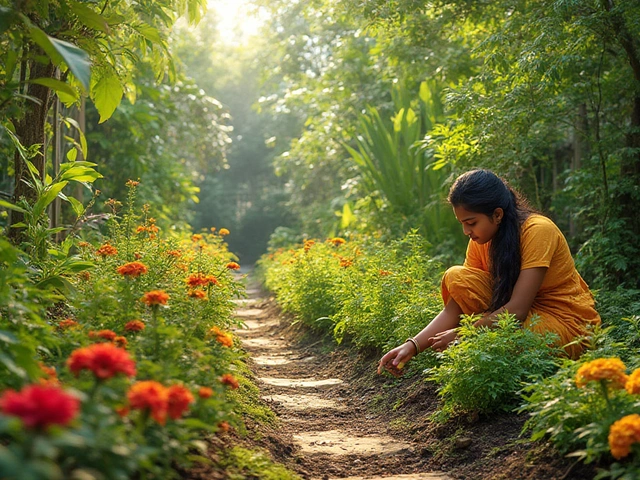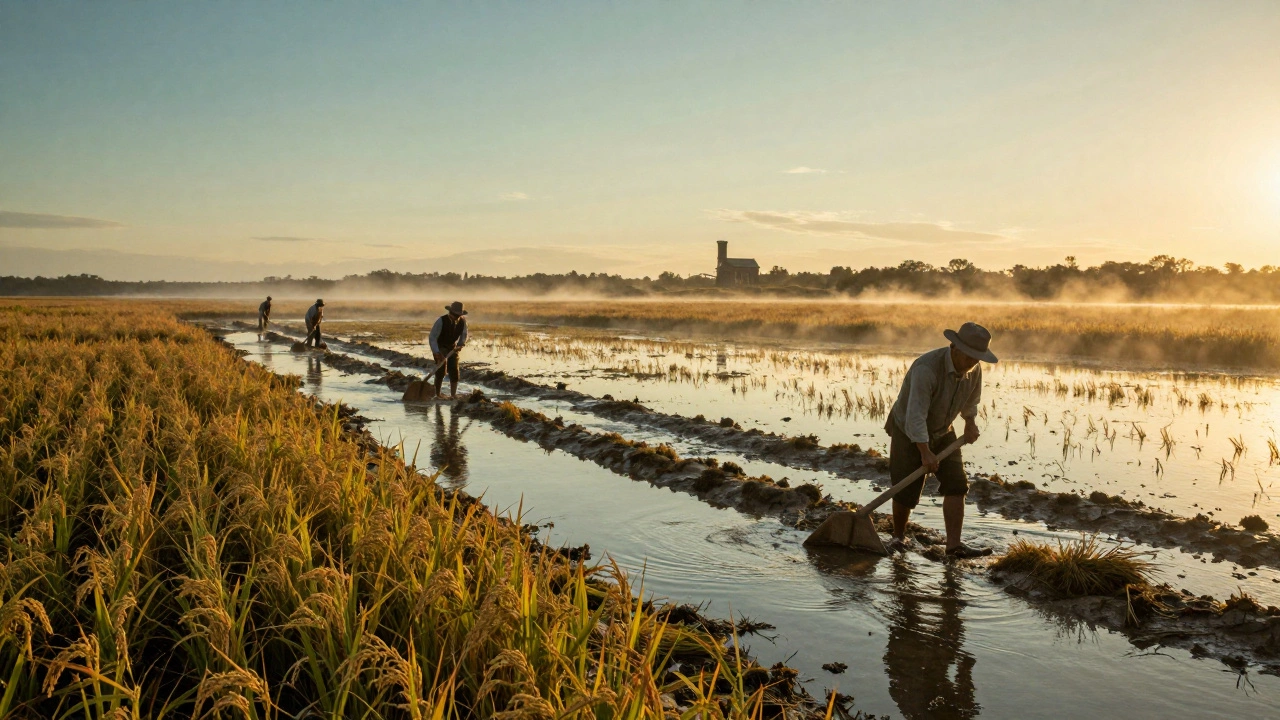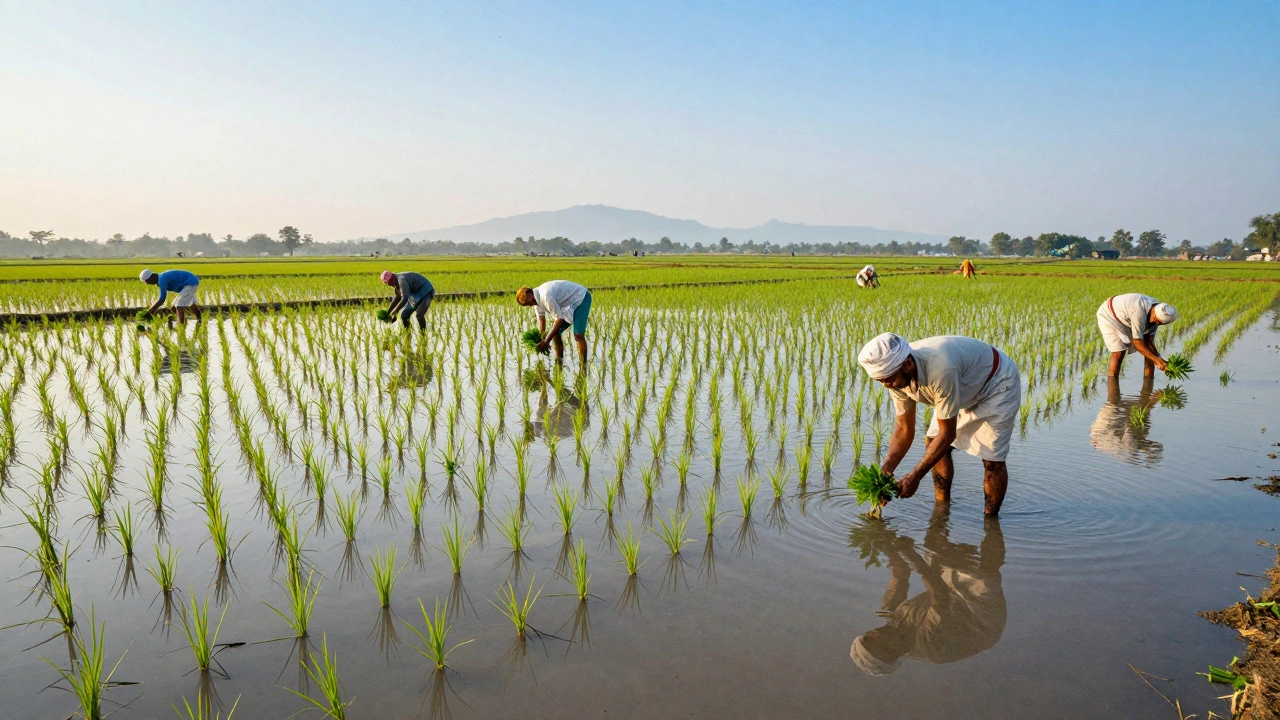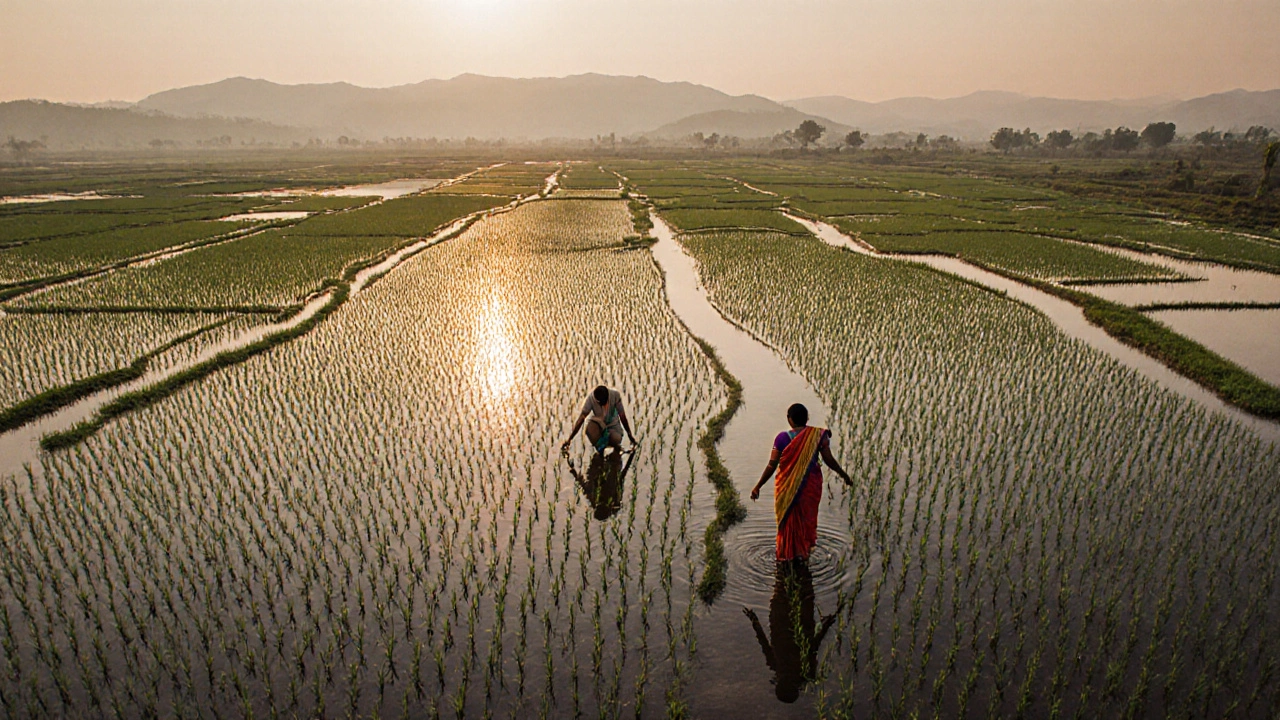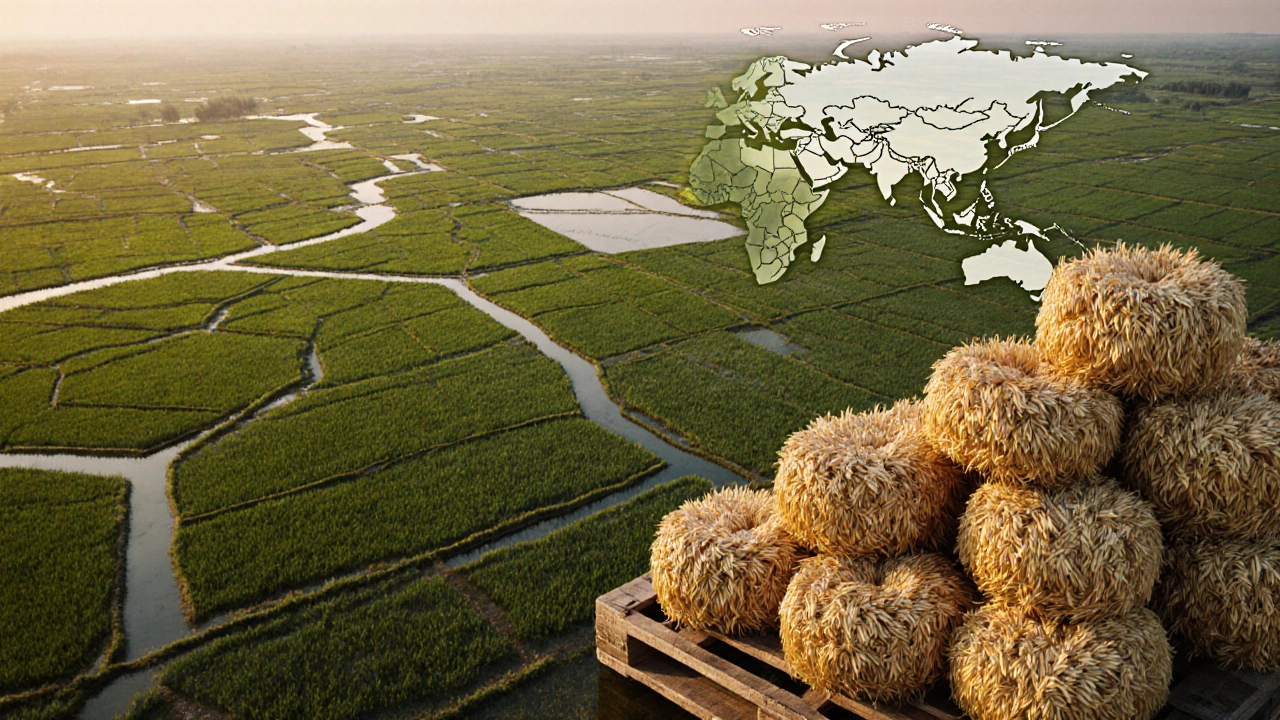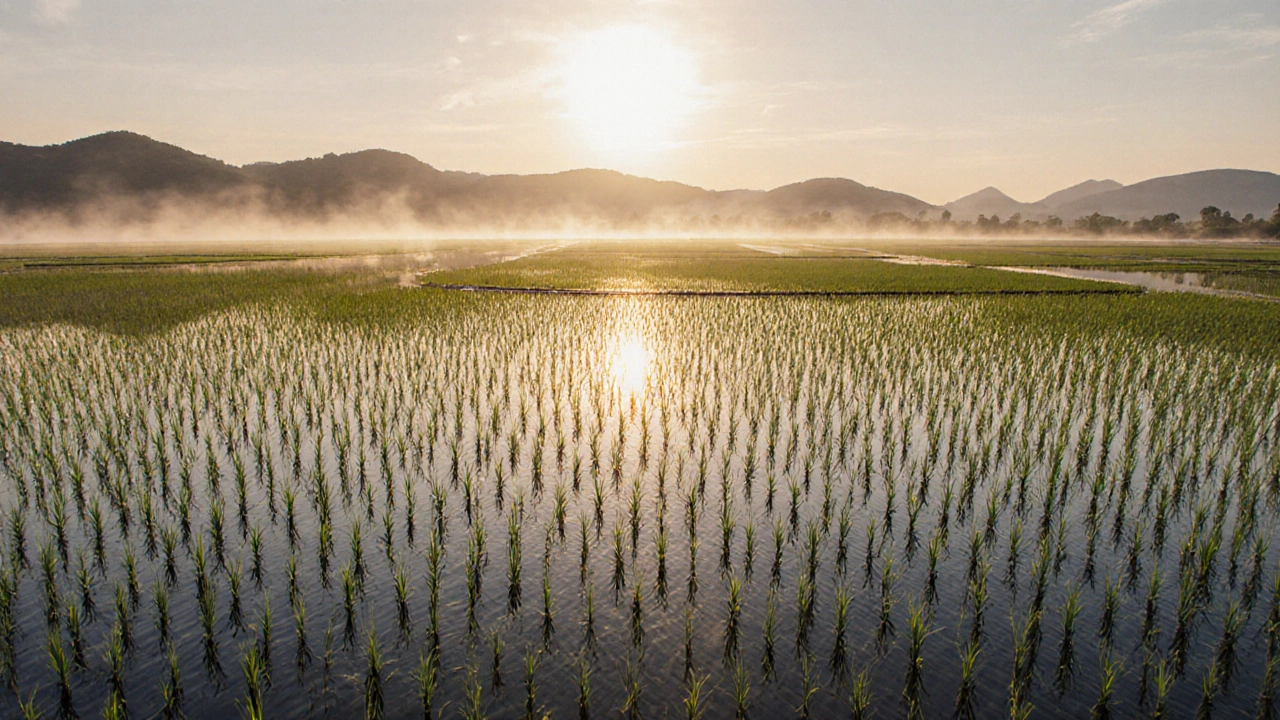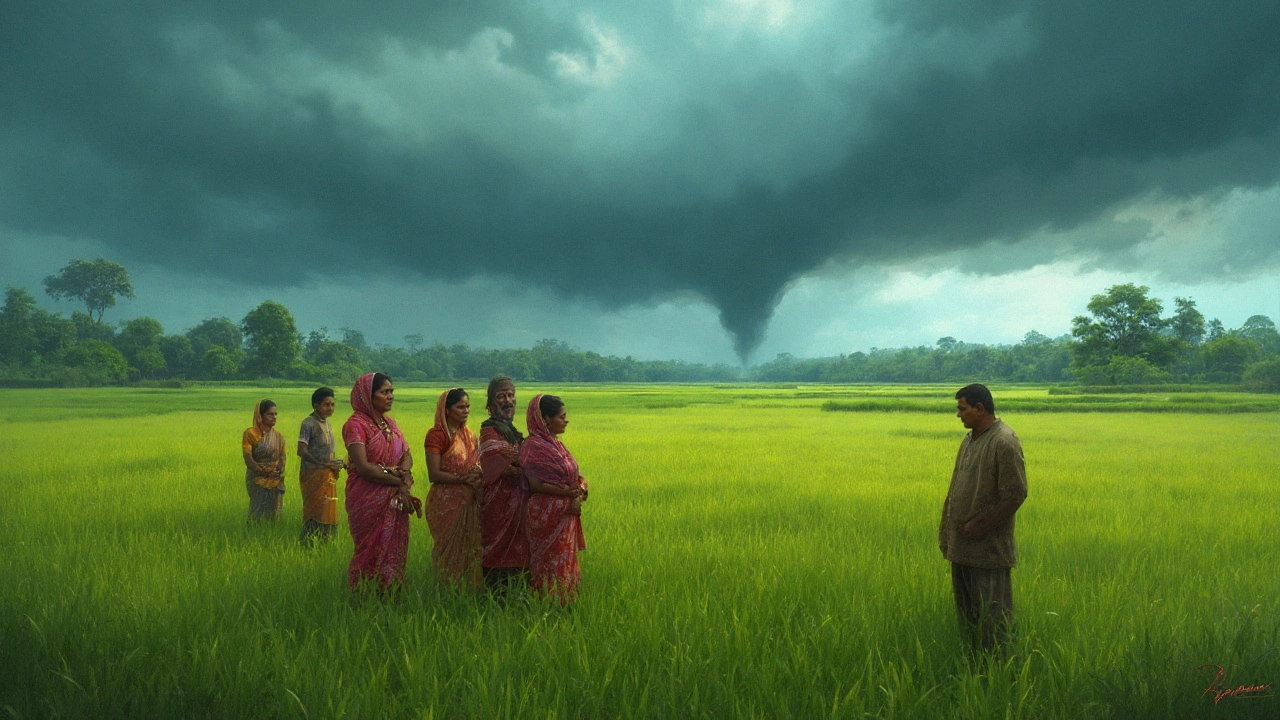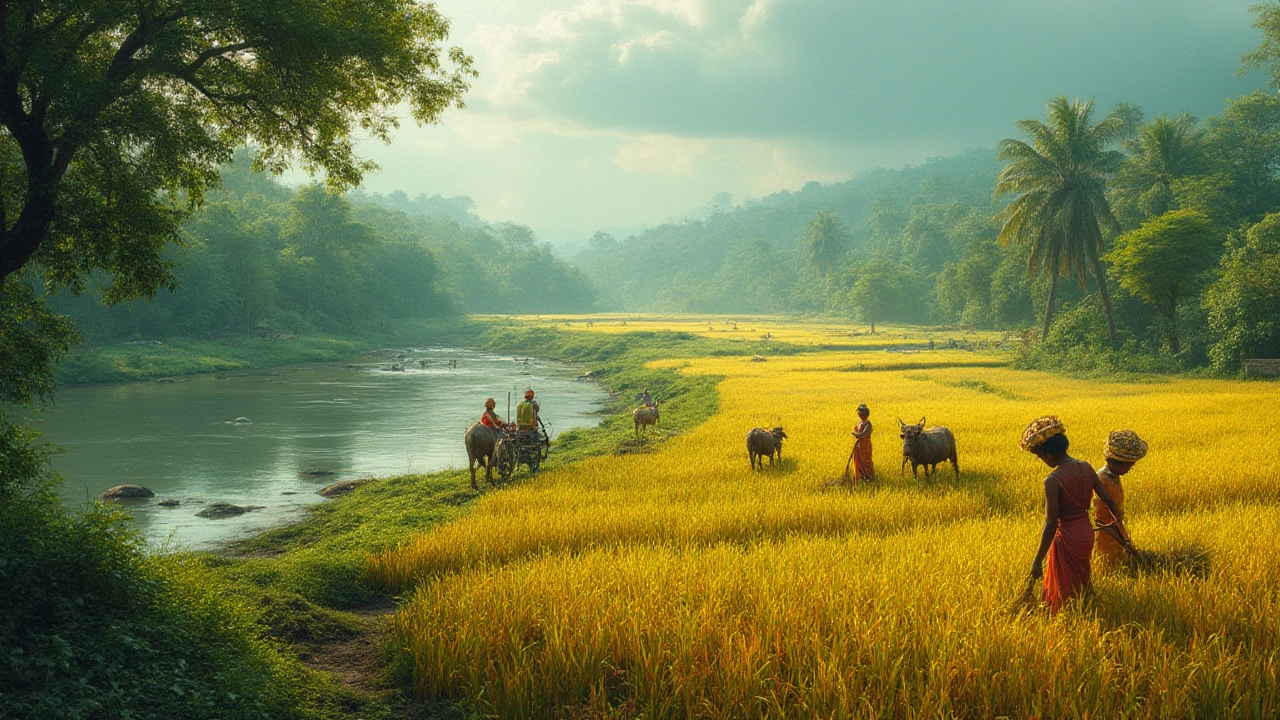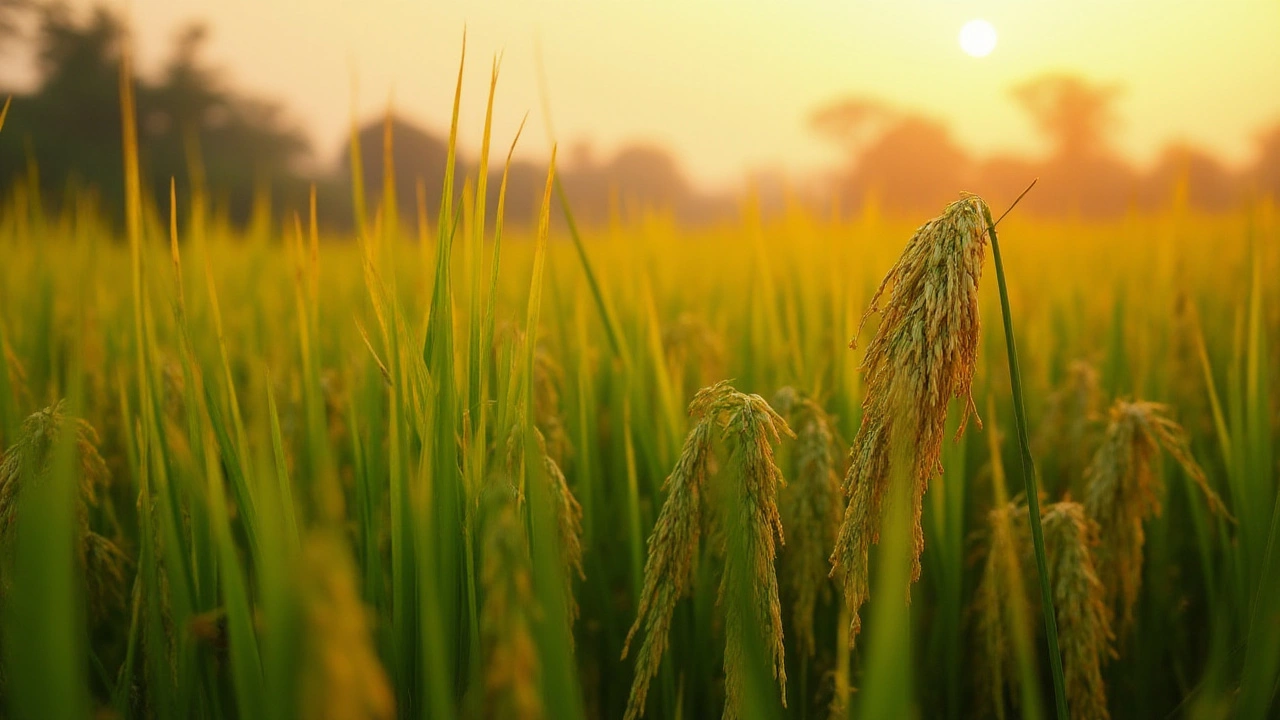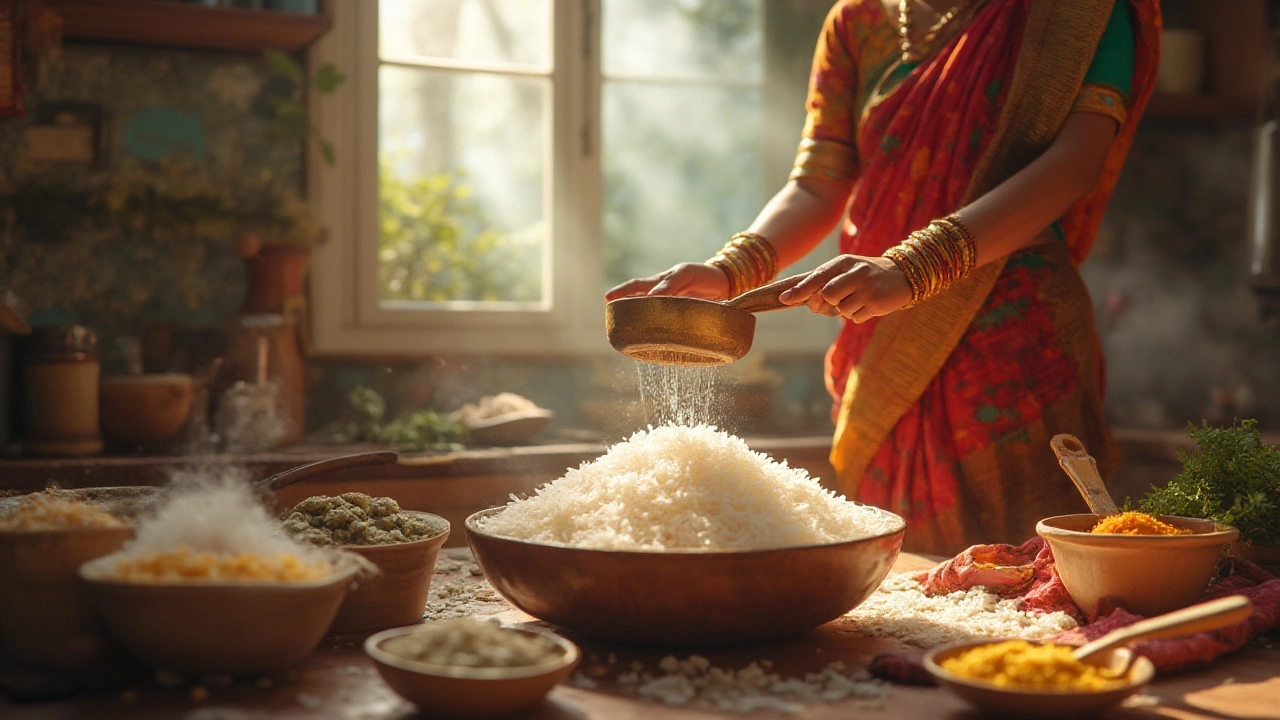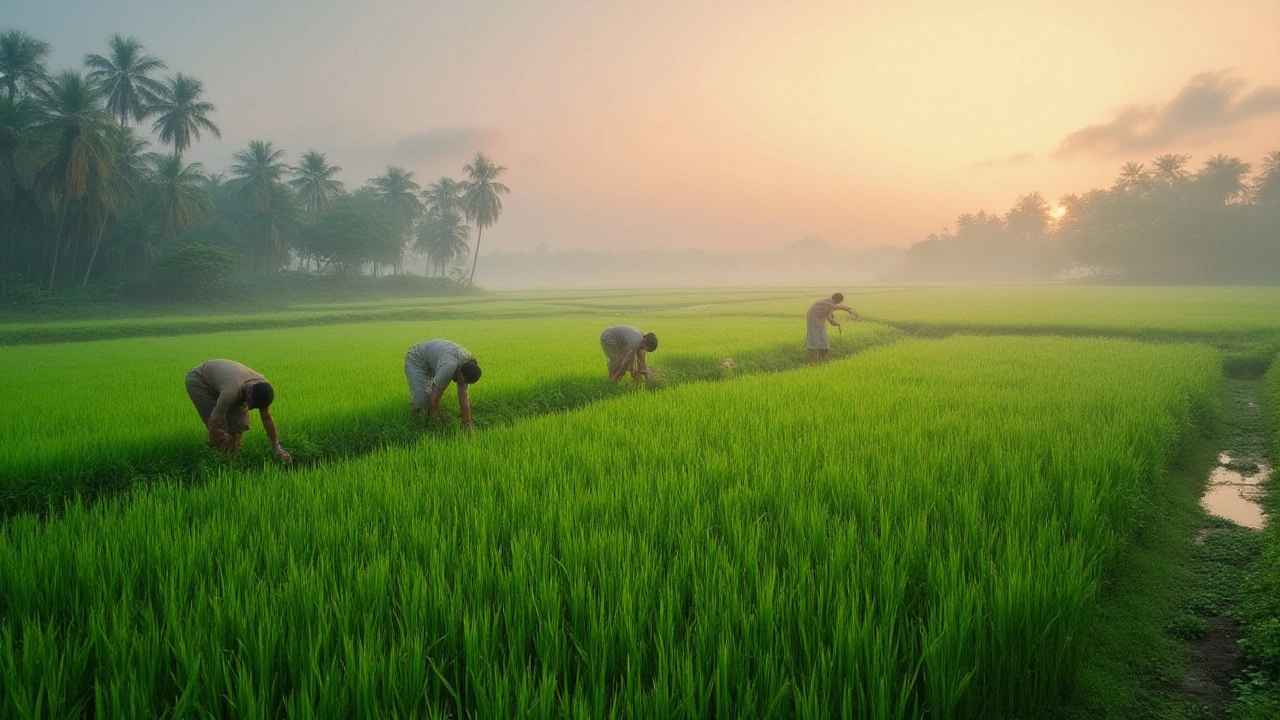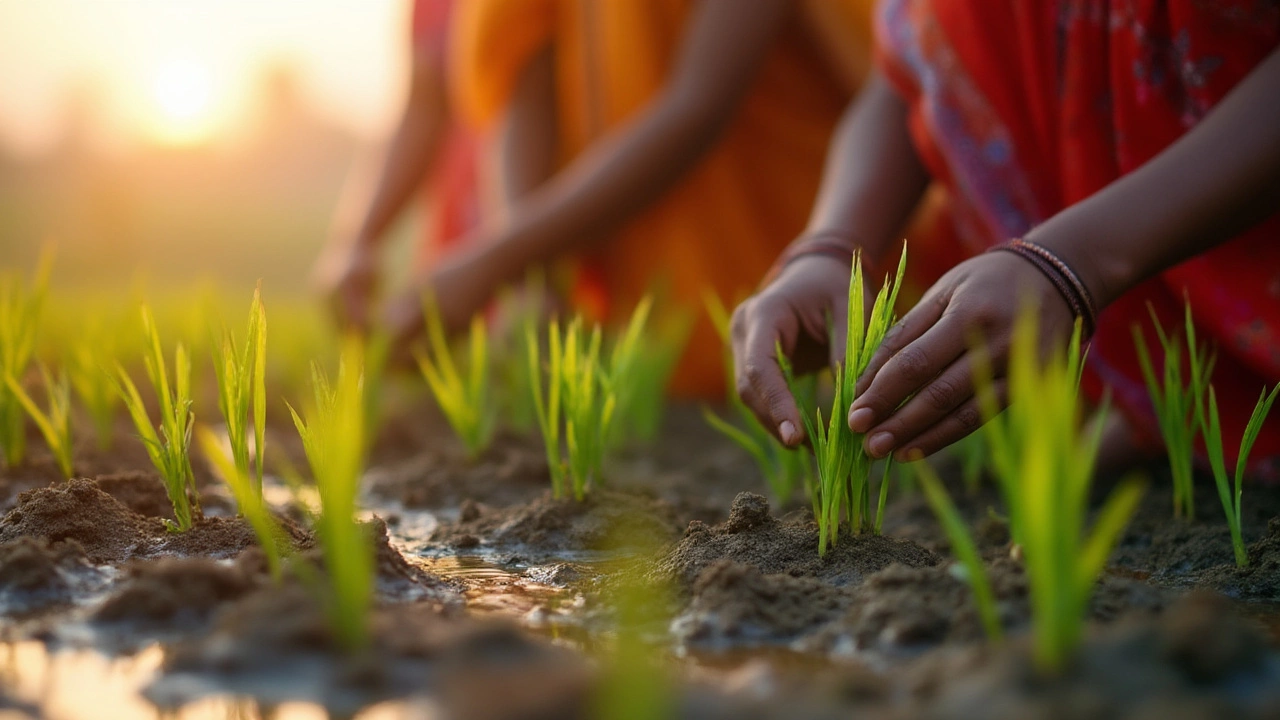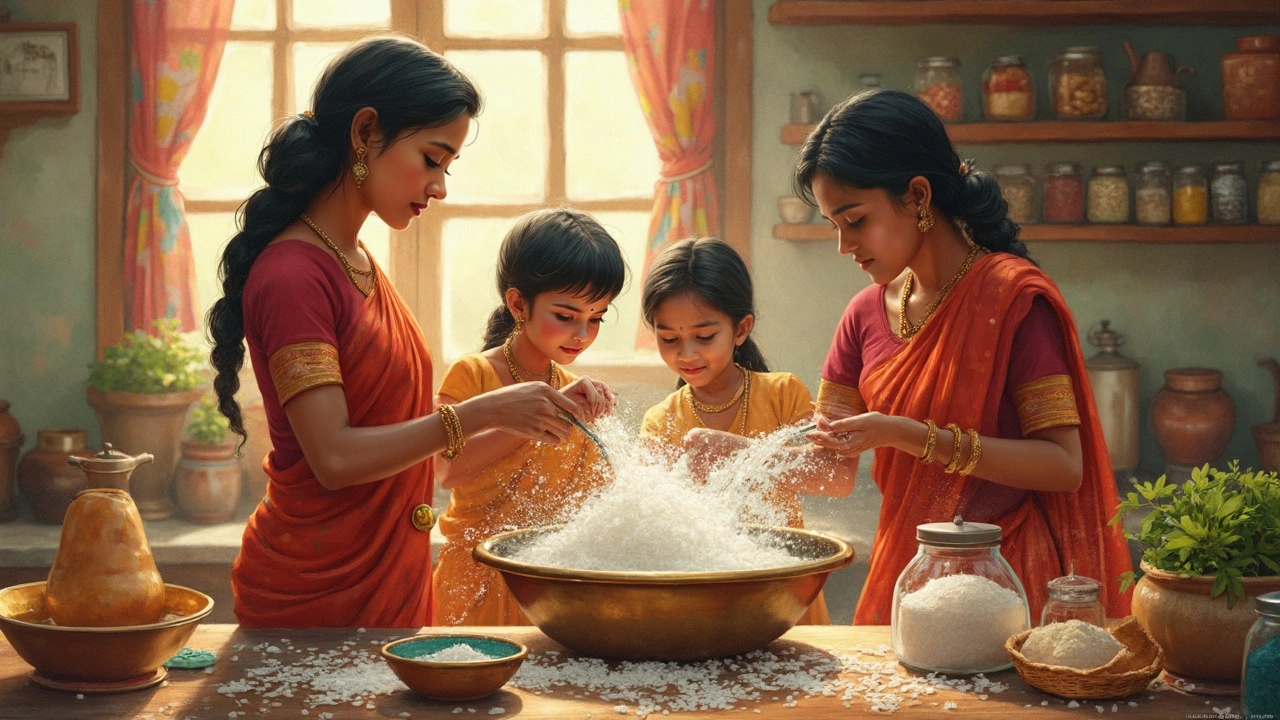Rice Cultivation: Simple Tips to Grow a Successful Paddy
If you’ve ever stared at a muddy field and wondered how rice actually grows, you’re not alone. The good news? Rice isn’t a mystery—it just needs the right soil, water, and timing. Below you’ll find down‑to‑earth advice that works whether you have a half‑acre backyard plot or a larger farm in Punjab.
Choosing the Right Soil and Site
First thing’s first: soil matters. Rice loves a loamy, water‑retaining soil that can hold a few inches of water without turning into rock. If your land is sandy, mix in organic compost or clay to improve retention. A quick field test – scoop a handful of soil, add water, and see if it forms a thick mud ball. If it does, you’re good to go.
Next, think about location. Rice thrives in low‑lying areas where water can be easily controlled. Avoid spots that drain too quickly or get flooded for months. In India, many growers use reclaimed land near rivers because the natural water table stays high. If you’re in a drier zone, consider building a small bund to trap rainwater.
Planting Depth, Water Management & Harvest
Planting depth is surprisingly crucial. Seedlings should be placed 1‑2 cm deep – deep enough to stay moist, shallow enough to reach sunlight quickly. Too deep and they waste energy; too shallow and they dry out. After sowing, flood the field to a depth of about 5 cm. This standing water suppresses weeds and creates the perfect environment for rice roots.Water management doesn’t stop after flooding. Keep the field level with 5‑10 cm of water for about 3‑4 weeks, then slowly drain to a 2‑3 cm level during the grain‑filling stage. This helps the plant focus energy on producing grains instead of staying afloat.
When it’s time to harvest, look for the golden‑brown color on the stalks and a hard feel when you bend them. Cutting too early can cut your yield, while waiting too long invites pests. Use a sickle or a small mower, then let the cut stalks dry for a day before threshing.
That’s the core of a successful rice cycle. You’ve got soil prep, planting depth, water tricks, and harvest cues covered. Put these steps together, adjust for your local climate, and you’ll see a healthier, higher‑yielding paddy.
Want a quick checklist? Here it is:
- Test soil – aim for loamy, water‑retentive texture.
- Level the field and build a small bund if needed.
- Sow seedlings 1‑2 cm deep, flood to 5 cm.
- Maintain 5‑10 cm water for 3‑4 weeks, then reduce to 2‑3 cm during grain filling.
- Harvest when stalks turn golden and feel hard.
Follow this guide, keep an eye on weather patterns, and you’ll turn a modest plot into a reliable rice source. Happy farming!
Why is Carolina Gold Rice so good?
Carolina Gold Rice is a heritage grain with a nutty flavor, firm texture, and deep cultural roots in the American South. Grown in tidal soils using centuries-old methods, it's prized for its aroma, independence from modern farming, and unmatched taste.
How Long Does It Take Rice to Grow? Full Timeline from Seed to Harvest
Rice takes 90 to 180 days to grow, depending on variety and climate. Learn the stages of rice cultivation, how weather affects growth, and how to grow it at home.
How Many Acres of Rice Are Needed to Feed One Person?
It takes about 0.033 acres of rice land to feed one person for a year-roughly 1,450 square feet. Rice farming uses huge amounts of water and land, but new methods are making it more sustainable.
5 Surprising Rice Facts You Should Know
Discover five eye‑opening rice facts covering production, types, water use, nutrition, and modern innovations that keep this staple grain vital worldwide.
Ideal Land for Growing Rice: Best Soil Types & Conditions
Learn which soil types and land conditions give rice the best chance to thrive, with practical steps for soil testing, amendment, and water management.
Risks of Rice Business: Common Challenges and How to Avoid Them
Discover the risks of the rice business, from unpredictable weather to global price swings and pests. Learn practical tips to reduce losses and succeed in rice cultivation.
Who First Discovered Rice? Tracing the Ancient Roots of Rice Cultivation
Dig into the true story of rice’s origins. Track who first cultivated it, how rice spread, and what cultures shaped the world’s most eaten food.
How Many Rice Grains from One Plant: Surprising Yield Facts You Need to Know
Ever wondered how many rice grains grow on a single plant? Discover fascinating yield numbers, plant growth facts, and practical tips for maximizing your rice harvest.
How Much Rice Does 1 Cup Make? Unpacking Dry to Cooked Ratios for Perfect Meals
Wondering how much rice a cup produces? Get exact answers, tricks for fluffy grains, and yield facts to ace your next meal. Avoid soggy or undercooked disasters.
Best Soil for Rice Cultivation: Secrets to Thriving Paddies
Discover the best soil for rice cultivation, how it affects growth, and tips to improve your own rice field no matter where you live. Detailed guide inside.
How Deep to Plant Rice: Best Depths, Mistakes, and Expert Tips
Planting rice at the right depth might sound simple, but it's key for healthy crops. Find out the science behind the best rice planting depth and get hands-on advice for perfect results.
Why Wash Rice Before Cooking? The Real Reasons Revealed
Ever wondered why people bother washing rice before cooking? This article breaks down the science and tradition behind this common step, exploring if it really makes rice healthier or tastier. From dirty grains to hidden chemicals, we'll look at what actually gets rinsed away. You'll find tips for doing it right and learn how growing, harvesting, and processing rice affect why washing matters. Whether you're whipping up sushi or a simple bowl of steamed rice, knowing when and how to wash can amp up your results.
- 1
- 2
About
Rice Cultivation
Latest Posts
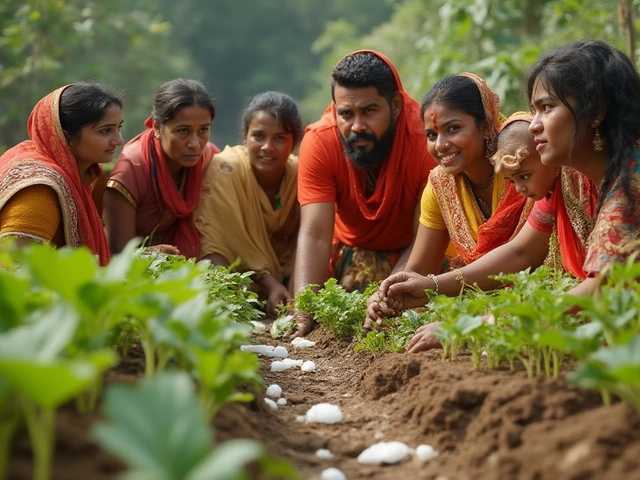
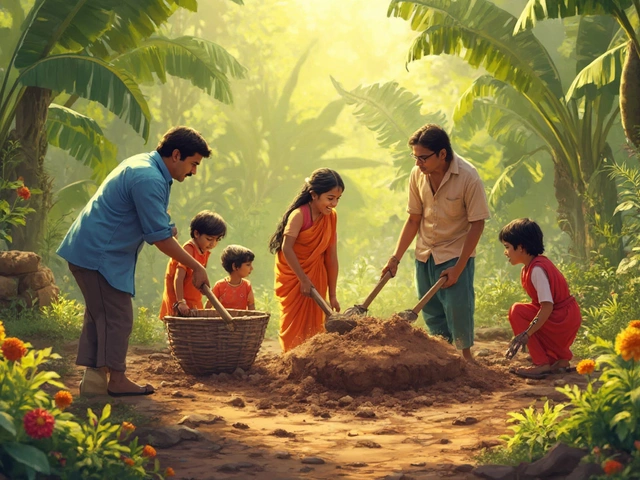
How to Fix Hard Soil in Your Garden for Healthier Plants
By Alden Thorne Jun 29, 2025

Most Sustainable Plant in the World: A Real Game-Changer for Your Garden
By Alden Thorne Apr 23, 2025
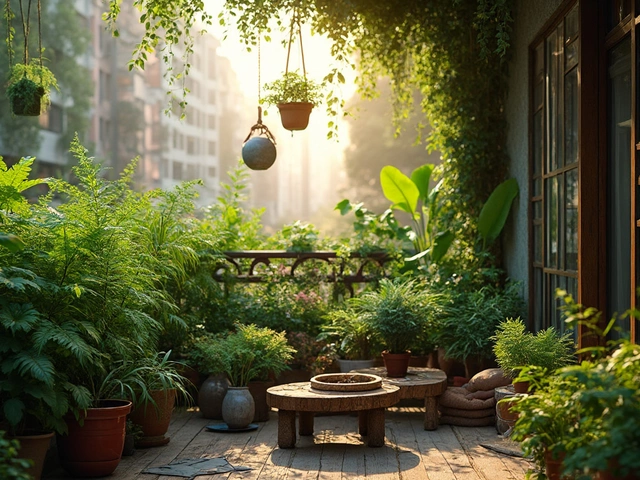
Top Shade-Loving Plants for Your Balcony Garden
By Alden Thorne Apr 13, 2025
